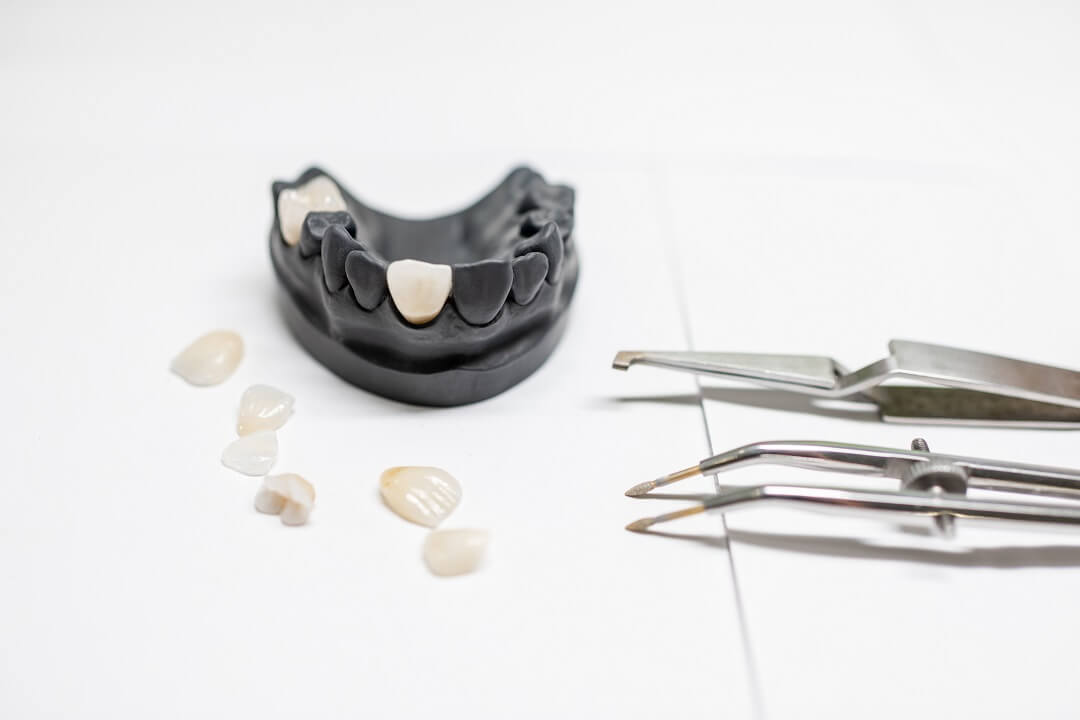When you are unhappy with the appearance of your teeth, you tend to hide your smile. Imperfect teeth can contribute to reduced self-esteem and feeling very self-conscious. Veneers are a cosmetic dentistry treatment that allows dentists to cover up chipped and discolored teeth, as well as correct misshapen teeth or small gaps between teeth. But how do veneers work and how long do veneers last? Veneers are thin sheets of various materials that are traditionally bonded to the surface of your tooth to adjust the appearance. How long they last depend on the type of veneer, the material used, and how they are cared for.
Key Takeaways
- Veneers improve tooth appearance, bonding to tooth surface.
- Types include porcelain, composite, instant, and removable veneers.
- Longevity varies by type, material, and care received.
- Factors affecting lifespan include material quality, hygiene, and oral protection.
- Regular care, protection, and dental checkups extend veneer lifespan.
Types of veneers
When it comes to choosing veneers, there are various material and bonding options that you can choose from. Each comes with its own pros and cons and can contribute to just how long they last. Here we take a closer look at each veneer type, how they are applied, their benefits, and how long they last.
1. Porcelain veneers
Porcelain veneers are the most commonly chosen veneers to help restore a beautiful smile. They are best known for their natural-looking appearance, durability, and long life. To apply porcelain veneers, your dentist removes a small amount of enamel from the surface of the tooth before applying and bonding the custom-made veneers directly to the surface of the tooth.
How Long do porcelain veneers last?
How long your porcelain veneers last depend on a variety of different factors that we will address below. However, porcelain veneers are the most durable options, with the average lifespan being 10 to 20 years.
2. Composite veneers
Composite veneers are slightly different in their application process but are quickly becoming as common as porcelain veneers as they are typically a less expensive option. Unlike porcelain veneers which are custom-made, thin sheets of material that are bonded to the tooth, composite veneers are made from a composite filling material that is shaped and molded to the prepared tooth. Once the material is molded into place, a special light is used to harden the composite and bond it securely to the tooth. Once hardened, the teeth are smoothed and polished for a finished look.
How long do composite veneers last?
While composite veneers are very strong and durable, they have a shorter lifespan than porcelain veneers, averaging five to seven years. However, replacement is relatively easy and quick, and less expensive than porcelain veneers.
3. Instant veneers
Instant veneers, such as Lumineers, are slightly different than traditional veneers. For traditional veneers, a minimal amount of enamel must be removed from the tooth to allow the veneer to fit properly. This removal of enamel makes veneers a permanent need, meaning should you lose or damage a veneer, one must be replaced. Instant veneers work slightly differently in that there is no need to remove any enamel from the surface of the tooth. This allows the dentist to apply the veneers directly and remove them should they become damaged, or you decide they are no longer an option for you. When removed, there is no damage to your teeth. Because the application process is must easier, you can often get instant veneers in a single dental visit.
How Long do instant veneers last?
Despite being thinner than porcelain veneers, instant veneers claim to have the same durability and long life. In general, instant veneers can last between 10 and 20 years with the proper care.
4. Temporary veneers (removable)
Removable, or “snap-on” veneers, are a non-permanent alternative to traditional veneers. These veneers work similarly to a denture, but instead of fitting onto your gumline, they snap in over your existing teeth. Removable veneers are often a more cost-efficient option that does not cause any lasting damage to the surface of your teeth. They are also a good alternative to try before committing to the more permanent veneer options.
How long do removable veneers last?
Removable veneers are made from a crystalline acetyl resin that does not have as long a lifespan as some of the other veneer options. On average, removable veneers last for about two to five years.

Factors that affect the longevity of veneers
Getting the most out of your veneers depends on a variety of different factors. These factors can include:
- Material type and quality
- Your overall dental hygiene
- The use of oral protection when necessary
- Do you grind your teeth?
- Eating hard foods, such as nuts or candy
How to extend the life of your veneers
In order to extend the life of your veneers, you need to make sure that you provide them with regular care and protection. This starts with a good oral hygiene routine that includes regular visits to your dentist. Veneers do not prevent damage from bacteria and decay, so it is important to keep your teeth clean and healthy. In addition, regular dental visits allow your dentist to detect any potential concerns before they become a problem.
If you are an athlete or grind your teeth at night, it is a good idea to talk with your dentist about dental protection, such as a mouthguard. Too much pressure on your veneers without protection can cause damage.
Giving your smile a makeover with veneers
You don’t have to hide behind your smile any longer. There are a variety of different veneer options that can give you back the beautiful smile you desire. At Soundview Family Dental, we understand the importance of loving your smile, and our team of professionals is here to help find the perfect veneers to fit your needs and your budget.
To learn more about how veneers can give you back your smile, contact us today.


